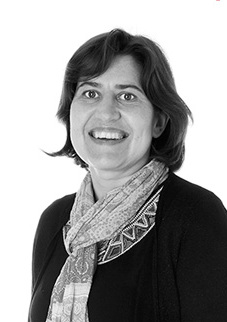Valerie Masson-Delmotte facts for kids
Quick facts for kids
Valerie Masson-Delmotte
|
|
|---|---|

Valérie Masson-Delmotte in 2015
|
|
| Nationality | French |
| Alma mater | Ecole Centrale Paris |
| Awards | Martha T Muse prize |
| Scientific career | |
| Fields | climate science |
| Institutions | The Climate and Environment Sciences Laboratory, Commission for Atomic Energy |
Valerie Masson-Delmotte is a French scientist who studies Earth's climate. She works at a special lab in France called the Climate and Environment Sciences Laboratory (LSCE). This lab is part of the French Alternative Energies and Atomic Energy Commission.
She uses information from Earth's past to understand how our climate is changing today. She has also helped write important reports for the Intergovernmental Panel on Climate Change (IPCC).
Contents
Early Life and Learning
Valerie Masson-Delmotte was born on October 29, 1971. She grew up in Nancy, a city in the northeast of France. Her parents were both English teachers.
She went to a school called Ecole Centrale Paris. In 1993, she earned a special engineering degree with high honors. She continued her studies there and received her PhD in 1996. Her PhD focused on how fluids move and transfer energy, which is important for understanding climate.
Her Work and Impact
After finishing her PhD, Valerie Masson-Delmotte started working as a researcher. She joined the Commissariat for Atomic Energy (CEA) at the Laboratory of Climate and the Environmental Sciences.
She became a leader of a research group in 1998. By 2008, she was a Senior Scientist and Research Director at CEA. Her work involves studying water vapor in the air. She also looks at how Earth's climate has changed in the past. She uses things like ice cores and tree rings to learn about old climates. This helps her test and improve today's climate models.
Valerie Masson-Delmotte has been part of many important projects. These include national and international efforts, like those with the Intergovernmental Panel on Climate Change (IPCC). She has also been a member of the French Research Strategic Council since 2014.
She has written many scientific papers and books. Some of her books are for the general public, and she has even written books for children.
Working with the IPCC
The Intergovernmental Panel on Climate Change (IPCC) is a group that brings together scientists from all over the world. They study climate change and provide reports to governments.
In October 2015, Valerie Masson-Delmotte was chosen to be a co-chair for Working Group 1 (WGI) of the IPCC. This group focuses on the basic physical science of climate change. She helped lead the writing of the paleoclimate chapter for the IPCC Fifth Assessment Report. This report looked at information from past climates.
She also led the activities for Working Group One during the IPCC Sixth Assessment Report cycle. She held this important position until a new group of leaders was chosen for the IPCC Seventh Assessment Report cycle.
Awards and Special Recognitions
Valerie Masson-Delmotte has received many awards for her important work.
- In 2002, she won the Grand Prix Etienne Roth du CEA from the French Academy of Sciences.
- She was part of the group that received the Nobel Peace Prize in 2007. This prize was given to Al Gore and the IPCC.
- In 2008, she won the Descartes Prize from the European Commission. This was for her work on a project called EPICA, which involved scientists from different countries.
- She received the prize of scientific excellence UVSQ in 2011.
- In 2013, she won the Irène Joliot-Curie prize for being an outstanding woman scientist of the year.
- She was awarded the French-Austrian Prize Amédée in 2014.
- In 2015, she won the Martha T. Muse prize for her contributions to Antarctic science.
- In 2019, she received the 2020 Milutin Milankovic Medal from the European Geosciences Union.
- In 2020, Utrecht University gave her an honorary doctorate for her work in climate science. That same year, she also received the Prix Diálogo with her partner, Mª del Carmen Domínguez, for their environmental research.
- In 2023, she was awarded the BBVA Foundation Frontiers of Knowledge Award.
Selected Works
- Masson-Delmotte, Valérie, and others. "Information from Paleoclimate Archives." In: Climate Change 2013: The Physical Science Basis. Contribution of Working Group I to the Fifth Assessment Report of the Intergovernmental Panel on Climate Change. Cambridge University Press, 2013.
- Hansen, James, and others. "Target atmospheric CO2: Where should humanity aim?." arXiv preprint arXiv:0804.1126 (2008).
- Loulergue, Laetitia, and others. "Orbital and millennial-scale features of atmospheric CH4 over the past 800,000 years." Nature 453, no. 7193 (2008): 383–386.
- Jouzel, Jean, and others. "Orbital and millennial Antarctic climate variability over the past 800,000 years." Science 317(5839) (2007): 793–796.
- Masson-Delmotte, Valérie, and others. "Past and future polar amplification of climate change: climate model intercomparisons and ice-core constraints." Climate Dynamics 26, no. 5 (2006): 513–529.
- Siegenthaler, Urs, and others. "Stable carbon cycle–climate relationship during the late Pleistocene." Science 310, no. 5752 (2005): 1313–1317.
- Masson Valérie, Françoise Vimeux, Jean Jouzel, and others. "Holocene climate variability in Antarctica based on 11 ice-core isotopic records." Quaternary Research 54, no. 3 (2000): 348–358.
See also
 In Spanish: Valérie Masson-Delmotte para niños
In Spanish: Valérie Masson-Delmotte para niños
 | Sharif Bey |
 | Hale Woodruff |
 | Richmond Barthé |
 | Purvis Young |

